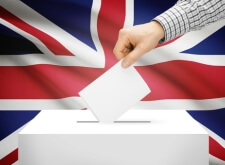 Labour has continued to stand its ground over new nuclear build and in doing so has blasted the Scottish National Party (SNP) view that there should be a ban on further nuclear development.
Labour has continued to stand its ground over new nuclear build and in doing so has blasted the Scottish National Party (SNP) view that there should be a ban on further nuclear development.
Shadow energy secretary Caroline Flint said the party has made it clear that:
“Nuclear is an important part of the energy mix going forward”.
This notable moment of clarity in an otherwise curious energy policy from the Labour Party sees a commitment to not concede to the SNP on nuclear energy should the expected coalition arise.
Holding their nerve is critical to UK energy policy as Labour like the Tories, believe that new nuclear development is required to help the UK to reduce its carbon emissions and meet future electricity demand.
This is further bad news for this potential Labour/SNP coalition. Whether this is a phoney way remains to be seen, but first they were bickering over an energy price freeze with SNP criticising the idea. Only for an SNP flip flop to now support the idea and adding its voice to Labour’s calls for Ofgem to be given powers to force energy companies to cut bills, and for the regulator themselves to be jointly overseen by the Scottish parliament.
In a curious and belated acceptance of reality, Flint stood by her party’s pledge to freeze energy bills but sheepishly admitted that funding low carbon technologies, such as carbon capture and storage, would add costs to energy generation.
Really you couldn’t make it up, but many are fooled by the unfullfilable promise of an energy price freeze and importantly for Labour the general electorate seem to have swallowed this one hole.
The Conservatives however have not with energy minister Matthew Hancock pointing out that Labour’s need to support low carbon technologies – as all parties bar UKIP have committed to – would actually add to the cost of energy bills. Hancock reacted to the reality pointing out:
“Bang goes Labour’s so called price freeze”.
A key policy that the proponents know cannot work, that the opposition know cannot work and that the electorate believe will be the solution to all their issues.
This isn’t going to end well, a bit like the prospective coalition.
With the future government up in the air, what’s clear is that this potential coalition will be a battle of wits rather than a meeting of minds. And the electorate are bound to end up disappointed.
